From November 30th to December 12th, the world will come together in Dubai, United Arab Emirates, for the climate change negotiations at COP28. This year, the University of Waterloo, through the Waterloo Climate Institute, will participate as an official observer to COP28 by sending an in-person delegation of top student leaders and faculty researchers to bear witness to the negotiations at a pivotal moment in our collective goal to limit global warming to 1.5 degrees.
We recognize that this may be a contentious COP, and we see an important role for climate researchers in holding decision-makers to account, ensuring that momentum is built for just transitions to resilient, low carbon societies, and directly addressing arguments in favour of delaying action.
The Waterloo Climate Institute will offset the delegation’s travel emissions to COP28 through vetted carbon offset suppliers and projects that meet Gold Standard or Clean Development Mechanism (CDM) standards.
The Waterloo Climate Institute is pleased to present our COP28 delegation:
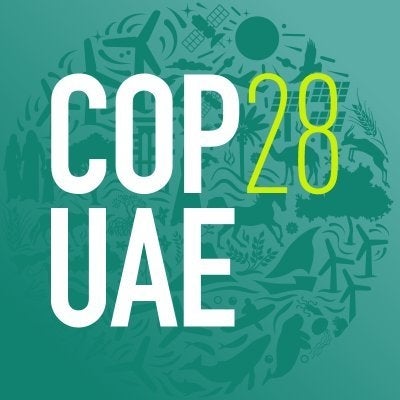

Jose Di Bella
Jose Di Bella is the manager of research and partnerships at the Waterloo Climate Institute and an Adjunct Assistant Professor in the department of Geography and Environmental Management. Jose works closely with the Institutes’ researchers, partners and collaborators to advance community engaged research. He also leads the Institute’s research development strategy and knowledge mobilization programs. Jose’s experience includes a significant international focus on the social and economic aspects of climate change adaptation and disaster risk reduction, as well as the design and implementation of climate and sustainability strategies.
At COP28 Jose hopes to gain a deeper understanding of the priorities set for this year's negotiations and is keen to explore the perspectives held by the community of organizations and individuals working on climate change regarding the potential for progress at both the national and sub-national levels. He is interested in initiatives that not only reflect the magnitude of the challenges posed by climate impacts but also serve as exemplars of genuine inclusion and empowerment of local stakeholders.Jose believes that a realistic perspective on climate action must be contextualized within the evolving global landscape marked by rapid technological advancements and shifts in global security.
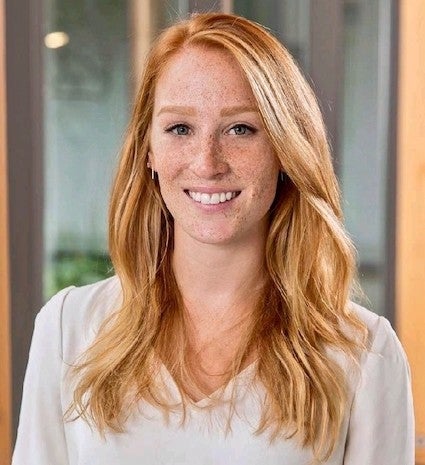
Sarah Greene
Sarah Greene is a Ph.D. candidate in the Global Governance program at the Balsillie School of International Affairs, University of Waterloo. She specializes in energy studies and Canada's role in global energy governance. Her current research explores the climate implications of the varying approaches of fossil fuel-reliant states' international climate commitments, as some seek to entrench oil production, further making the shift to decarbonization harder. Sarah is a Senior Research Analyst with the Automotive Policy Research Centre. This collaborative research partnership explores the role of public policy in supporting Canada's globally competitive automotive industry. She is currently examining the global automotive sector's transition towards electric vehicles (EVs) and the implications this has on North American supply chains and Canada's automotive sector. Sarah holds an M.A. in International Public Policy from Wilfrid Laurier University and an (Honours) B.A. from the University of Toronto. Outside of academia, Sarah has worked in several capacities for General Motors of Canada.
Sarah's research explores the enigmatic capacity maintained by the G20 states within the global energy and climate regime. Despite commitments to lower greenhouse gas emissions through programs ending government support for fossil fuels, domestically and abroad, and allocate financial flows towards climate-resilient development, the G20 states are projected to continually fail to meet their pledges despite publicly declaring increasingly ambitious climate contributions and commitments. At a time when we need to end the fossil fuel era, given the deepening climate crisis, attending the COP committed to conducting the first global stock-take of where we are in implementing the Paris Agreement will shine a light on what it will take to scale up climate action, particular for G20 states. By attending COP28, Sarah seeks to contribute to the conversations around the imperative, opportunities, and pathways to phasing out oil production to advance global climate policy action and better understand the role the G20 and fossil fuels will play in the plan moving forward from this global stock-taking. Sarah will explore whether dialogue leading up to and at COP will boost the imperative of a managed global fossil fuel phase-out, one that must start with those with the largest historical carbon debt, or will it be primarily a synthesis that estimates where we are and how much we are lacking?
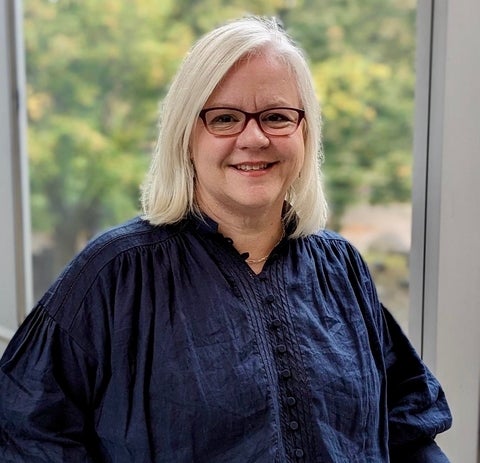
Kirsten Müller
Kirsten Müller is a Professor and the current Chair in the Department of Biology, and her expertise is in the field of phycology focusing on the biodiversity and ecology of algae in both freshwater and marine environments. Her research also addresses the proliferation of toxic algal blooms due to climate exacerbated events (e.g. forest fires) as part of the NSERC Network for Forested Drinking Water Source Protection Technologies (forWater). Kirsten is the current Managing Editor of a leading journal in her field, the Journal of Phycology and is Past President of the Phycological Society of America.
In 2019, Kirsten was chosen to be part of Homeward Bound. A yearlong leadership initiative for women in STEMM to advance the influence and impact of women in significant decision making for our communities and planet and culminated in the largest expedition of women to Antarctica (many who will be attending COP28). Her research is directly related to the “The Ocean” and “Science” topics being covered at COP28 and she has particular interest in “Gender & Climate Change”. As a woman in STEM it is critical that the voices of women, who face considerable impacts due to climate change, are heard and this provides her with an opportunity to connect with these women. In addition, COP28 will provide her with extensive experience of global conversations to share when she returns to UWaterloo: in the classroom, within her department and Faculty as well as within her scientific community.

Shahan Salim
Shahan is a PhD candidate at the School of Public Health Science, specializing in digital epidemiology. His research revolves around using cost-effective technologies and artificial intelligence to address critical public health challenges arising from climate change. Shahan is actively engaged in a partnership with UNICEF in Mongolia, where he collaborates on initiatives employing low-cost air quality sensors to monitor and predict adverse outcomes related to air pollution exposure in underserved communities. His research is graciously supported by the Natural Sciences and Engineering Research Council of Canada (NSERC).
Shahan is also the Co-Director of Data 2 Action for Climate Change within his research lab, Ubilab. In this capacity, he works closely with his team on developing systems that monitor and track sentiments and narratives surrounding climate change, as well as identifying and mitigating misinformation and disinformation in this domain.
By participating in COP28, Shahan hopes to connect with fellow innovators, researchers, government and non-governmental agencies, and technology companies. Inspired by the University of Waterloo’s commitment to innovation and addressing the complexities of climate change, he aspires to be a catalyst for collaboration, initiating and nurturing conversations that lead to transformative partnerships and initiatives that yield innovative solutions to the pressing climate challenges of our time.
Virtual Delegation
The Waterloo Climate Institute's delegation is also made up of individuals that will be attending the proceedings virtually.
The Waterloo Climate Institute is proud to present our COP28 Virtual delegation:
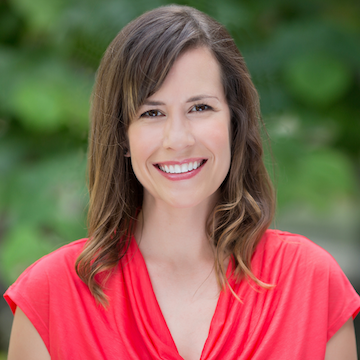
Sarah Burch
Sarah Burch, PhD is a professor in the Department of Geography and Environmental Management at the University of Waterloo as well as the Executive Director of the Waterloo Climate Institute. She holds a Canada Research Chair in Sustainability Governance and Innovation and is an expert in transformative responses to climate change at the community scale, innovative strategies for making progress on sustainability, and the unique contributions that small businesses can make to solving this complex challenge. She leads the international partnership-based research project TRANSFORM: Accelerating sustainability entrepreneurship experiments in local spaces and is the Director of the Sustainability Policy Research on Urban Transformations (SPROUT) Lab. Professor Burch was a Lead Author of the Sixth Assessment Report of the Intergovernmental Panel on Climate Change.
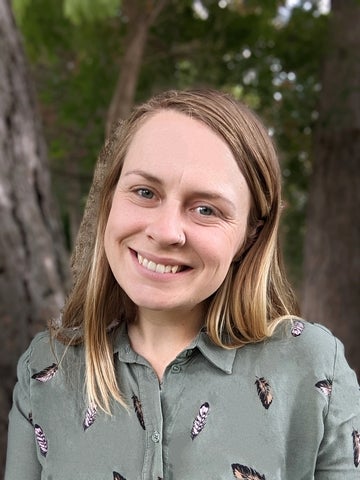
Amy Hall
Amy Hall is a Masters of Climate Change Student who is interested in nature-based solutions for climate change problems. Amy looks forward to learning about climate adaptation strategies in the agriculture sector and how climate finance can accelerate these actions. Amy will be advocating for equitable inclusion of Indigenous peoples, women, and youth in climate change discussions.

Harshina Brijlall
Harshina Brijlall is a PhD student in the Department of Biology. Her research interests include investigating potential toxin producing markers from microbial communities in freshwater lakes with a focus on forested watershed management and harmful algal bloom monitoring to improve drinking water quality. As a virtual COP28 delegate, Harshina is interested in witnessing Canada’s commitment and leadership to the 30x30 Global Diversity Framework, COP28 Water Agenda, integration of gender equality initiatives in policies, and the outcomes of the Global Stocktake process.

Ila Kuntum
Ila Kuntum is a Master's in Environment and Business student at the University of Waterloo. Ila’s interests in attending COP28 are centered around the role of business and trade, in particular MSME’s, in contributing to climate change mitigation and adaptation efforts. Ila is also looking forward to learning from sessions and discussions that relate to the role that climate change plays in gender inequality, conflict & forced displacement to help set the context for entrepreneurship challenges that women and minority groups face.
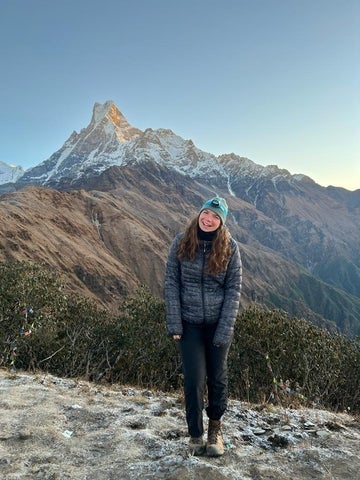
Jacqueline Harper
Jacqueline Harper is a Master's student in Geography, and her research is focused on using tourism in the recovery process of a destination post-disaster. At COP28, she most excited to learn about how the tourism industry is going to adapt and mitigate the current impacts of the changing climate. Jacqueline is super excited to attend this conference and share her experience with you!
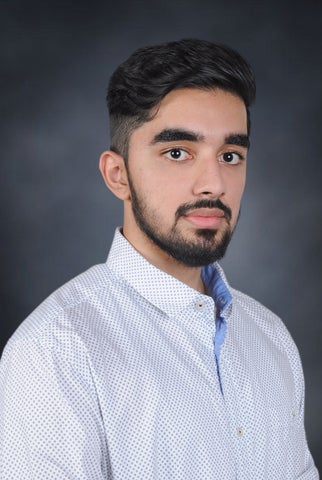
Miswar Syed
Miswar Syed is a master’s student in the Department of Electrical & Computer Engineering at the University of Waterloo, Canada. He is the 2023 IEEE PES Scholar, Student Energy Fellow, member of the Waterloo Institute for Sustainable Energy (WISE), and a TEDx Speaker. Miswar has received multiple awards and is a passionate researcher interested in renewable energy, energy storage, green hydrogen, and ammonia. He is a published author and has experience working in Fortune 500 and startups in the clean energy space. As an inventor and co-founder of a cleantech startup, Miswar strongly believes that startups will play a crucial role in achieving a successful clean energy transition.
As a researcher in renewable energy and founder of a climate tech startup, my interest in attending COP28 lies in the opportunity to align my work with global climate policies, showcase innovations for collaboration, and actively advocate for policies supporting the growth of the renewable energy sector. Engaging with industry leaders and staying informed about emerging trends are key aspects that can significantly contribute to the success and impact of my work. For me, COP28 serves as a dynamic forum where interactions and contributions can collectively advance the cause of sustainable energy solutions on a global scale.